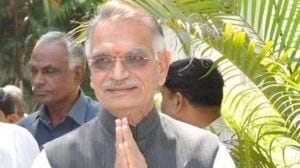When the Department of Telecommunications (DoT) proposed to regulate services like WhatsApp and Google Meet by requiring them to obtain a licence under the draft Indian Telecommunication Bill, 2022, it met a long-standing demand by telecom companies who had argued for “same service same rules”. After convincing the government about it, telcos are reiterating another old pitch: to make over-the-top (OTT) platforms pay for using their network. In an interview with SOUMYARENDRA BARIK, the director general of the Cellular Operators Association of India (COAI), SP Kochhar explains why telcos want OTTs to pay usage charges for using their infrastructure. He also makes a pitch for financially compensating telcos for assisting in surveillance like phone tapping and business disruptions during internet shutdowns. Edited excerpts:

The government has taken the first step toward the right action. There is a need to define OTT communication services in the Bill clearly. We have also written to the government that since OTTs use the telcos’ networks to propagate their business, they should pay for it. We have made analogies with the road transport network and said that whoever builds the road also collects the road tax. Similarly, usage charges should be paid by OTTs. It need not be at commercial rates; we can have negotiated rates. Licensing is to bring these platforms under the laws of the country.
Will it not create a differential pricing regime where big OTTs might be able to pay, but smaller ones might not?
Payment should be made based on the bandwidth utilised by a service. If you use more, you pay more. But, we have also not lost sight of social obligations. To encourage small-scale entrepreneurs and startups of Indian origin, we have even gone to the extent that we can lay down a particular threshold below which an entity need not pay. But the tech behemoths, who are earning millions and trillions of dollars, should contribute to developing the networks in India. As the networks are being developed primarily by telcos, they should be compensated for all their expenditure to build the same.
Why do telcos need OTT communication services like WhatsApp to pay them, not streaming services like Netflix, Hotstar etc.? Doesn’t the latter also consume a lot of bandwidth?
When you broadcast content, users consume bandwidth only for one channel, like Netflix. But, establishing a communication channel between two people to talk to each other and setting up millions of such channels to share texts, video or audio, the bandwidth consumed by that is much higher.
Story continues below this ad
For the industry’s financial health, why are telcos not actively exploring increasing tariffs?
That would be the simplest way, but it will pinch the pocket of the Indian consumer. Looking at the OTT platforms, most foreign-based, we are allowing them to make profits for a proprietor based in another country. So, the better way would be to charge these platforms that are using Indian subscribers to make profits and are sending that money outside without contributing anything to the Indian ecosystem. Besides, India is a price-sensitive market; most users are in rural areas who don’t have deep pockets to pay for higher tariffs.
You say that OTTs have hit telcos’ revenues. But isn’t it true that many of the other telcos’ financial issues started when Jio entered the space?
There are multiple variables in the crucible. The telecom sector has reached equilibrium after multiple players were reduced to three companies in the industry. They have a place from where they can’t go below because then it will not be a viable business for all three of them.
Story continues below this ad
Today, one of the major variables are OTTs because they are using the network to the maximum. So, to continue harping that there are price wars because of what happened seven years back is incorrect. That will happen in a democracy and in open markets.
How are telecom companies viewing the apparent dilution of powers of the Telecom Regulatory Authority of India (TRAI) under the draft Bill?
If you look at it in the short term, it will be opportune for any telco to say that the number of restrictions will be reduced. But we are also here for the long haul. In a democracy it is always best to have checks and balances, which is why TRAI’s departure into becoming insignificant will not be good for the service. We have not supported the dilution. Telcos have been at loggerheads with TRAI on some issues, and that will continue to happen, but we feel that an independent body like TRAI is required to put a check on policymakers. It’s a necessary requirement.
Telcos have been asking the government to share financial burden for assistance with surveillance activities like phone tapping. Why is that?
Story continues below this ad
The security situation all across the world is changing, and it is becoming more sophisticated and technology oriented. To provide the raw material for analysts in requisite government departments will detract telcos from their primary role of providing communications, for which they will have to invest in such capabilities. As a result, the financial stress on telcos will also increase. Since it is for the security of the nation, we are happy to do it, but at the end of the day we would also like better finances. We would like that as we go along, the government also shares the financial burden of providing that security.
How do you view the debate around internet shutdowns, both from a business and societal point of view?
Internet shutdowns are mostly ordered by local administration which doesn’t work under the Telecom Act. They have enough powers under the CrPC and IPC to do that for law and order purposes. But to regulate internet shutdowns to an extent that the local administration has no powers could have far reaching effects. What can be done is to stop indiscriminate use of the power, which is what we have suggested to the government. There needs to be accountability, and a set of enforceable guidelines for the local administration. Internet shutdowns also impact telcos’ business. People migrate to other services during shutdowns. There needs to be a fixed revenue model so that these losses can be compensated.

































